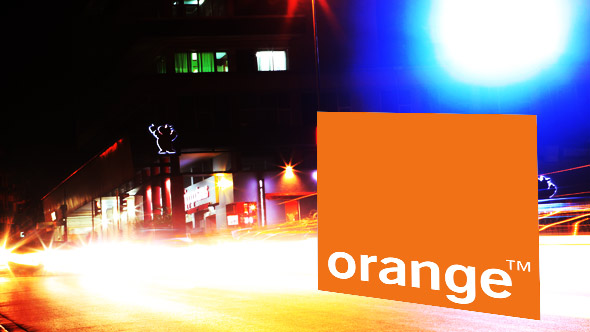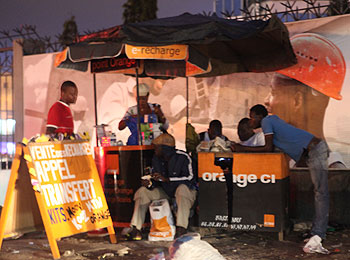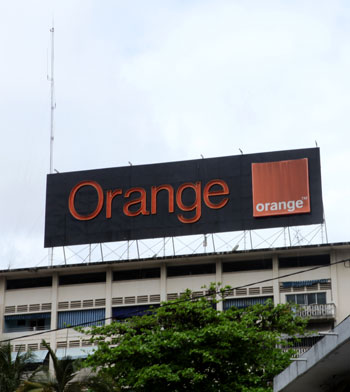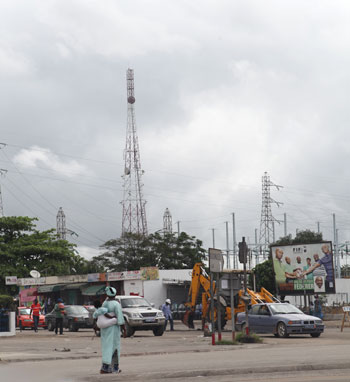Telecommunications in Côte d’Ivoire: Story of Orange Côte d’Ivoire
Côte d’Ivoire was one of the first countries in Sub-Saharan Africa to gain full internet connectivity. Orange owns an 85% interest in Orange Côte d’Ivoire, which began operating its network in 1996 under the Ivoiris brand, and a 45% interest in Côte d’Ivoire Telecom (CIT), Ivory Coast’s incumbent telecommunications operator, which supplies fixed-line telephone services as well as broadband and wholesale services.

Telecommunications in Côte d’Ivoire: Orange Côte d’Ivoire
Côte d’Ivoire was one of the first countries in Sub-Saharan Africa to gain full internet connectivity. Orange owns an 85% interest in Orange Côte d’Ivoire, which began operating its network in 1996 under the Ivoiris brand, and a 45% interest in Côte d’Ivoire Telecom (CIT), Ivory Coast’s incumbent telecommunications operator, which supplies fixed-line telephone services as well as broadband and wholesale services.
The story of Orange is remarkable. In just a few short years, it has grown from a mobile phone brand in the United Kingdom to become one of the world’s leading brands in broadband, content, and associated services for consumers and business. Today, France Telecom’s Orange has 17,000 employees worldwide, including 120,000 employees in France and the rest in 35 other countries. In the first 9 months of 2011, total sales reached 3.8bn Euros. France Telecom has a customer base of 221mn customers worldwide, with 145mn under the Orange brand. Orange is the brand name for internet, television, and mobile phone services in most of the 35 countries that France Telecom serves.
The Orange brand embodies the Group’s values and commitment to bringing the digital universe to the largest possible number of people, creating a powerful and differentiating asset that unifi es the image of the enterprise around the world.
Orange Côte d’Ivoire
Côte d’Ivoire was one of the first countries in Sub-Saharan Africa to gain full internet connectivity. Orange owns an 85% interest in Orange Côte d’Ivoire, which began operating its network in 1996 under the Ivoiris brand, and a 45% interest in Côte d’Ivoire Telecom (CIT), Ivory Coast’s incumbent telecommunications operator, which supplies fixed-line telephone services as well as broadband and wholesale services.
Since 2002, CIT has operated under the Orange brand in Côte d’Ivoire, with a strategy to develop integrated offers and convergent services. Orange has aggressively expanded its rural services with an ambitious program of extensions to its mobile coverage. Orange Côte d’Ivoire directly operates 5 stores together with an indirect network comprising 14 exclusive partners and 43 franchises. CIT has 41 directly operated stores and 22indirect distributors.
Orange’s “Make Lives Simpler” Approach
Our goal and daily philosophy, says Mamadou Bamba, CEO of Orange Côte d’Ivoire, is to
“make our clients’ lives simpler. How do we achieve that? For one, there was the launch of mobile banking and the bonus zone, which allows populations to communicate at relatively low rates. We’re always looking for other ways to innovate…. For example, not long ago, we launched mobile insurance through an insurance company, in order to have as many people as possible to benefit from this life insurance. And we plan to continue in the same direction, so that our clients can have access to a maximum of “life” services, if I may call them so.
Orange Selected by Apple to Introduce the iPhone
Mamadou Bamba, CEO of Orange Côte d’Ivoire, sees every challenge as an opportunity to innovate and make people’s lives simpler. “For example,” he says, “development of broadband mobile has been hamstrung by many internal factors. Côte d’Ivoire is late when it comes to data mobile and broadband mobile technologies. We cannot develop content at a techno centre without an interface that allows high-speed navigation.”
Therefore, he explains, “Orange CI was chosen by Apple itself to launch the iPhone in Côte d’Ivoire. As of today, iPhones are used with EDGE networks. We must absolutely be able to ensure high-speed connection with a 3G network in order to maximize the customer benefit from using these devices. The iPad has already made its mark worldwide on the market, alongside the iPhone and other future products. This is why we must get this broadband mobile technology in Côte d’Ivoire and make up for lost time.”
Bamba insists that “Our strategy is to create a convergent, integrated operator with all three services: fixed, Internet and mobile. We also want our clients to have the best possible quality of service.”
Orange’s Innovation to Meet the Needs of People during the Recent Crisis
A good example of Orange’s dedication to making lives simpler occurred during the recent turbulent political crisis that gripped Côte d’Ivoire for 5 months, cutting people off from their families and leading to over a million refugees. In response, Orange offered a totally unique service to Ivorians who could not get to locations to refill their cards because they were cut off by the civil war: a free credit of 2000 CFA (a little under $5) to all customers; a week of free calls to a landline number of their choice or an Orange number; and a week of free Internet access.”
Orange explained its offer to help with this touching statement:
Par ces gestes de solidarité, Orange Côte d’Ivoire et Côte d’ivoire Telecom apportent leur soutien à tous leurs clients pour leur permettre de garder le lien avec leurs proches en ces moments difficiles. (Rough translation: With these acts of solidarity, Orange Côte d’Ivoire is providing support to all their customers to help them stay connected with loved ones during this difficult time.)
Orange’s policy in this regard has been lauded as a “great example of what responsible companies can do in moments of crisis,” with the hope expressed that “when crises emerge in other countries, companies will look to the excellent example Orange has set.”
New Orange Techno Center in Abidjan
Supporting technological innovation, Orange recently inaugurated its fourth Techno Center in Côte d’Ivoire’s commercial capital of Abidjan. The new site in Abidjan is in addition to Orange’s existing techno centers in London, Paris, and Amman, Jordan.
Orange calls its techno centers its “product and design factories,” each of which is intended to provide a center of expertise that is able to rapidly develop and launch new products and services specifically designed to meet regional needs. Marc Rennard, Executive Vice President in charge of operations in Africa, the Middle East and Asia, explains the purpose of the Abidjan Techocenter:
“By providing a regional platform, this new Technocentre will reinforce the Group’s capacity to develop innovative new products and services specifically designed to meet the needs of sub-Saharan Africa…. Markets in this region are characterized by strong growth and specific needs that require a whole new approach to mobile services. In addition to traditional voice communication, there is a strong demand for new services that provide access to financial services or local content for example. By drawing on local knowledge and expertise, the new Technocenter will enable us to develop innovative new offers in these areas that will create value both for our customers and the economy as a whole.”
The new Technocenter in Cote d’Ivoire will bring together teams from marketing, research, and network engineering. This “three partners” or 3P approach enables the group to simultaneously address every stage of the development cycle, from the initial concept to the development and marketing of new products.
partners” or 3P approach enables the group to simultaneously address every stage of the development cycle, from the initial concept to the development and marketing of new products.
Orange Money
One of the best examples of Orange’s customer-service oriented innovation is Orange Money, which is a brand new mobile-phone based payment service specially designed to meet the needs of customers in sub-Saharan Africa, where fewer than 10 percent of the population have bank accounts, but more than 60% have mobile phones. Orange money allows customers to set up an account with Orange—whether or not they have a bank account—from which they can send money to by their phone to pay any Orange Mobile customer in the country. This enables people to pay their electricity, water, television, or phone bills as well as a way to buy mobile phone credit from any location. In other words, Orange Money allows customers to carry out simple bank account operations in total security—without needing a bank, bank account, or even a computer.
Orange is also planning to expand Orange Money to include international banking operations, such as sending or receiving money transfers. Orange and Western Union, a global leader in international money transfers, have signed an agreement for Orange customers to receive international transfers directly on their mobile phones via Western Union’s global system. Marc Rennard, executive director for Orange Money’s Africa-Middle East-Asia (AMEA) operations, says that:
“Orange Money is a very important part of our strategy in Africa and emerging markets. Mobile payment services have the potential to bring cost-effective and secure access to banking services to people with low incomes, who often live in rural or remote areas. By providing our customers with the means to save money, pay bills, run their businesses and receive money from abroad, we are not only reinforcing customer fidelity but we are also able to play an active role in the economic and social development of the country.”
First launched in Côte d’Ivoire in 2008, Orange Money has grown to reach over 3 million customers in 8 other countries—Senegal, Madagascar, Mali, Niger, Kenya, Botswana, and Camaroon—and will soon be launched in a 9th, Mauritius.
Orange Connnects Côte d’Ivoire by Unddersea Cable
The cable ship Ile de Seine recently completed laying an undersea cable between Brittany, France, and Abidjan, Côte d’Ivoire, as part of the Africa Coast to Europe (ACE) Project. The 17,000 km-long-cable, jointly owned by France Telecom/Orange and Cote d’Ivoire Telecom, will eventually stretch all the way to South Africa, and will serve 21 countries.
Mamadou Bamba, CEO of Orange Côte d’Ivoire, describes its importance to Côte d’Ivoire:
In Côte d’Ivoire, we are very lucky to have the sea nearby. We are now the owners of an underwater cable. We are also about to launch a SCAN cable between Europe and Africa, which will enable an even greater speed starting from the beginning of 2012, and thus, reducing the costs. From then on, quality will peak and prices will go down for bandwidth. In the months to come, it should become possible to make calls between Côte d’Ivoire and any country or continent without having to move or bring in IT teams. This truly is cost optimization for our businesses.
